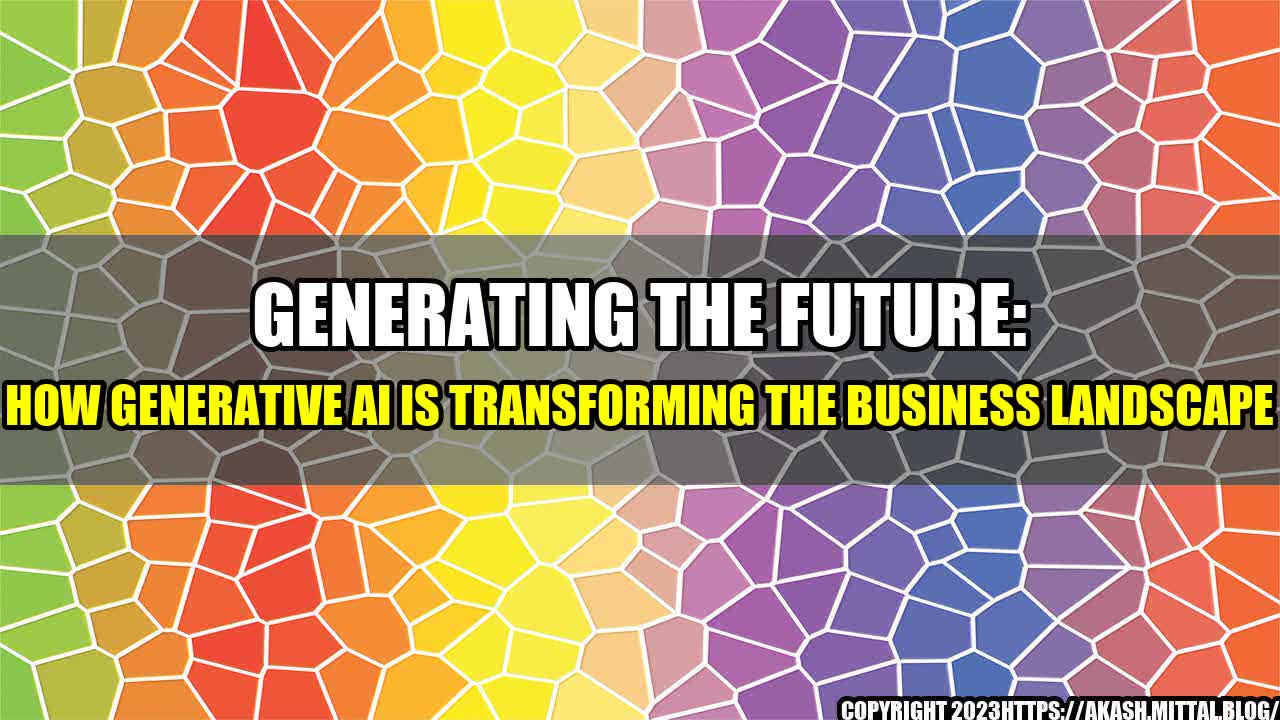
A few years ago, I found myself in a small town in northern Thailand. I was there for a work project, helping local businesses establish an online presence. I remember visiting a silk factory that had been in the family for generations. The owner, a woman in her sixties, expressed concern that the younger generation wasn't interested in continuing the family business. She was afraid that her family's legacy would disappear with her.
This got me thinking about the role of technology in preserving traditional businesses and creating new ones. Today, we're seeing a new breed of technology that has the potential to transform the business landscape: generative AI.
Generative AI is a subset of artificial intelligence that uses algorithms and data to create original content, including text, images, and even music. These algorithms are designed to learn from existing data and mimic human creativity, allowing them to generate new content that is both unique and relevant.
Generative AI has a wide range of applications, from creating personalized marketing content to automating certain aspects of product design and development. Already, we're seeing companies use generative AI to streamline workflows and reduce costs, while also improving the quality and relevance of their output.
Let's take a look at some quantifiable examples of how generative AI is transforming businesses across different industries:
In the retail industry, generative AI is being used to create personalized product recommendations for customers. By analyzing a customer's purchase history and browsing behavior, these algorithms can generate recommendations that are tailored to their preferences and needs. This not only improves the customer experience but can also increase sales and customer loyalty.
In the manufacturing industry, generative AI is being used to optimize product design and development. By generating thousands of design variations and testing them against specific criteria, these algorithms can identify the most efficient and effective designs, reducing the time and cost of the development process.
In the healthcare industry, generative AI is being used to analyze medical images and identify potential health risks. By analyzing patterns and anomalies in medical images, these algorithms can identify early signs of diseases and conditions, allowing for earlier and more effective treatment.
Generative AI is still in its early stages, but we're already seeing a significant impact on businesses across different industries. As the technology continues to evolve, we can expect to see even more applications and benefits, including:
Generative AI is already helping businesses streamline workflows and reduce costs. As the technology improves, we can expect to see even greater efficiency gains, as algorithms become better at automating complex and time-consuming tasks.
One of the key benefits of generative AI is its ability to create personalized content and recommendations. As the technology becomes more advanced, we can expect to see even more tailored and relevant content, which can improve the customer experience and increase engagement.
Generative AI has the potential to create entirely new business models, particularly in industries that rely on creativity and innovation. We can expect to see new startups and businesses emerge that leverage the power of generative AI to create unique and innovative products and services.
Generative AI is a powerful tool that has the potential to transform the business landscape. From personalized marketing content to optimized product design, we're already seeing the impact of this technology across different industries. As the technology evolves, we can expect to see even more applications and benefits, including increased efficiency, improved personalization, and new business models.
As for the silk factory in Thailand, I'm happy to report that they're still in business, and have even started selling their products online. Whether it's preserving traditional businesses or creating new ones, generative AI has the potential to play a significant role in shaping the future of business.
Curated by Team Akash.Mittal.Blog
Share on Twitter Share on LinkedIn